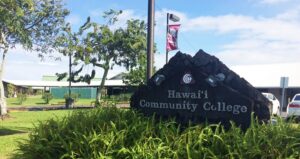A partnership between Alchemie, a digital learning tools developer, and Wiley, a publishing company, is helping college students with vision-based disabilities to use visualization tools in online courses without outside help.
A group of school districts, colleges, and universities in California have signed a new data-sharing agreement designed to improve education-to-career pathways across the region.
The Missouri Department of Revenue’s Motor Vehicle and Driver License (MVDL) division is getting ready to deploy its modernized driver license and processing system at all license offices.
The Indiana Office of Technology (IOT) has announced that it will offer no-cost website hosting for local governments, marking an expansion of a previous program that offered low-cost web hosting to local governments.
Hawaiʻi has launched Digital Detectives, a new initiative that looks to map internet speeds across the state.
The City of Scranton, Penn., is partnering with Verizon to deliver universal internet access across the city. Through the partnership, Verizon will invest tens of millions of dollars over the next three years to develop a ubiquitous network of fiber-based internet access to homes, providing the opportunity for all Scranton residents to subscribe to high-speed internet service.
The Federal Communications Commission (FCC) on Oct. 28 announced the launch of its Tribal Library E-Rate Advocacy Program (T-LEAP), which builds on the agency’s Tribal Libraries Pilot Program and will give Tribal libraries the chance to sign up for one-on-one assistance to start learning about and working on the E-Rate application process.
With Election Day quickly approaching, the Cybersecurity and Infrastructure Security Agency (CISA) launched a new one-stop shop website on Monday for election threat updates from CISA and the agency’s Federal partners.
While the United States is home to more than half of the top universities in the world, there is more work to be done when it comes to artificial intelligence education – and that’s something NVIDIA is trying to improve. According to U.S. News & World Report, only 10% of the top global AI universities are in the United States.
The University of Arkansas System is partnering with Workday to deploy the Workday Student solution at seven of the system’s campuses. The current deployment marks the first phase of implementation of Workday Student, with other institutions set to be added to the platform by Spring 2025.













